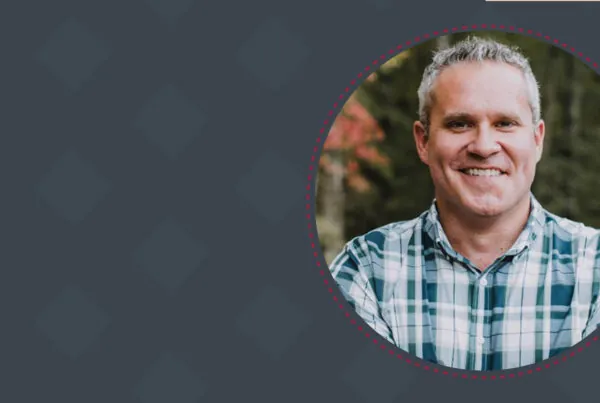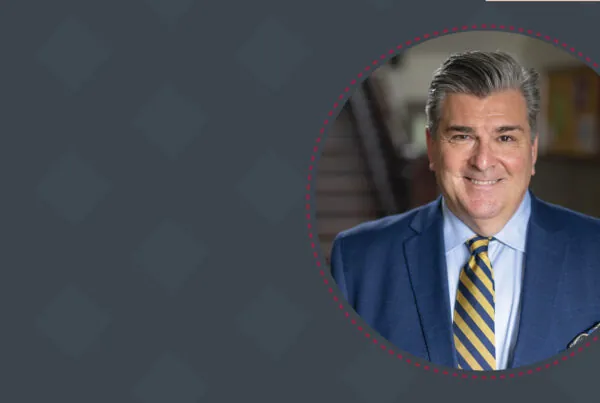Today, it can be easy to fall into the trap of wanting to move along at lightspeed. We hold an entire world of knowledge in the palm of our hands, so patience can be a lost art.
Even in fundraising, donations arrive faster now with text-to-give and online giving portals. Gone are the days of a donor only having the option of giving cash or writing a check.
At the Steier Group, we occasionally hear from a church, diocese or school eager to begin a capital campaign that they would rather not take the time to complete a feasibility study. The needs are urgent. Committees have discussed the plans at length. The community may even know about it and support it. It feels like momentum has already begun and the feeling is that waiting for a study will hinder the campaign.
At the Steier Group, 99 times out of 100, we would still advocate for a study. A properly run study is the starting point of a campaign and sets the first impression of the fundraising effort for your community. It builds momentum while educating your community and analyzing your capacity. It provides the feedback needed to customize a campaign plan, rather than implementing a cookie cutter approach that will be less successful. The study allows an organization to maximize the final amount raised.
“I always worry when I speak with an organization that wants to fast track the campaign and skip the study,” said Matt Vuorela, Chief Executive Officer of the Steier Group. “While it is possible to raise funds without a feasibility or planning study, we’ve always found that the amount raised will be less than that of a campaign that is well informed by a study.”
There’s a reason the Steier Group calls these efforts campaign planning studies. A thorough, customized and modern planning study makes it easy to plan out the best course for a successful campaign. It is a vital first step.
The momentum built during a study appears in the Steier Group’s fundraising data. We’ve found that our clients who begin a campaign immediately following a planning study exceed the projected goal at a higher rate than those that take time off between the study and campaign. Building that momentum during the study and then maintaining it during the campaign are key to reaching and exceeding the fundraising goal.
“Based on our experience, any worry that conducting a study slows momentum for a project is overstated,” Vuorela said. “The study allows us to educate your donors and provide them with a voice. In addition to all the information gathered during the study, it creates excitement for the project in your community – which is worth its weight in gold.”
What does a proper feasibility/planning study measure? In addition to projecting the organization’s fundraising capacity for the tested goals, these questions will be answered:
- What do your supporters think of the proposed campaign goals?
- Are there opportunities to secure gifts from outside the organization’s existing database?
- Who will serve as campaign leaders? Who will serve as volunteers?
- Who will consider significant gifts to the capital campaign? What might those gifts be?
- Which supporters would consider making a planned gift to the campaign?
- Which donors have already left a gift to the organization in their will?
- How should we structure the campaign? How long should it take?
- What challenges or “hot button issues” will the campaign face? How can we overcome those challenges?
- How much money can we raise? And how long will it take us?
Feasibility studies have always been a part of the Steier Group method. Over time, the keys to a successful feasibility/planning study have changed and evolved. What does a modern, customized study look like?
Here are the methods you should expect in a campaign planning study:
Embracing stewardship
At the Steier Group, all our fundraising work is done through the lens of stewardship.
Stewardship is more than cultivating a culture of financial gift-giving; it means creating the avenues that allow all to share from the many ways that God gives abundantly. The goal of a study is to start the process of allowing a community to rediscover the joy of giving back to God as faithful stewards.
Our campaigns cultivate a sense of gratitude and joy, emphasizing that giving is a joyful endeavor by embracing the words, “God loves a cheerful giver” (2 Cor. 9:7). We assist our partners in prayerfully sharing the ministry of the stewardship mindset from the campaign planning study through the entire campaign.
Personal interviews
At the Steier Group, we aim to speak with as many of an organization’s most active and engaged donors as possible during the campaign planning study. We average 84 interviews during a typical six-week study.
Personal interviews allow for donors to share their thoughts on the fundraising goals and the organization as a whole, and to ask any questions they might have. It also provides the campaign team an opportunity to educate and engage important stakeholders from the start. The information gathered here is vital to informing the makeup and construction of the capital campaign.
These personal interviews also provide an opportunity to gain information from donors, including identifying campaign volunteers and those who have planned gifts ready for an organization.
Online and print surveys
Personal interviews are the backbone of a modern study. Realistically, though, you can’t personally interview every constituent, even in a small parish community. But that doesn’t mean all voices aren’t important!
A modern study should reach out to all donors throughout the community. It is important to engage supporters outside the top 100. At the Steier Group, we share surveys through the mail and online for all supporters who do not participate in the personal interviews. Our motto is, “If you are going to ask someone for money in a campaign, first ask for their opinions in a study.” That applies to everyone; not just the top 100.
“While your major donors will represent the largest portion of funds raised, it is important for the whole community to feel engaged in the campaign,” Vuorela said. “Major donors are less likely to support the effort if they feel the rest of the community isn’t behind the campaign.”
Thorough review of offertory giving/annual giving
A modern study should be data driven as well.
At the Steier Group, we conduct a detailed review of an organization’s giving history, annual development activities and previous campaigns. Giving history is often a harbinger of future giving. This important data is the basis for making a projection on the amount an organization can raise in a capital campaign.
While analyzing the database, we also run the information through a system to correct and update addresses. Having up-to-date information is key when conducting a modern campaign.
Professional wealth screening and online donor research
While previous giving is the best predictor for future giving, it is not the only data point to explore.
A thorough wealth screening of an organization’s database is important. It can find donors who have the capacity to give at a much higher level than their giving history might indicate. It also can allow for a more nuanced ask for major donors, providing an opportunity to challenge a supporter to give more sacrificially.
Without this important data, an organization could fall short of achieving its campaign mission.
Community research
Additionally, the Steier Group researches what competing campaigns may be taking place in the wider community.
It is important to know if an organization’s supporters may already be part of a campaign and giving sacrificially, especially if the mission of that organization overlaps with your own. This can change the scope and reach of a capital campaign.
Also, a modern study should include research into foundation support and corporate giving programs. Although these avenues are not guaranteed fundraising tools, a well-researched study provides a strong basis for securing these additional dollars during the campaign.
Before embarking on your next fundraising campaign, make sure to conduct a comprehensive and modern campaign planning study to set yourself up for success.



